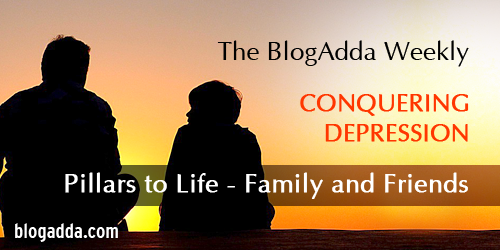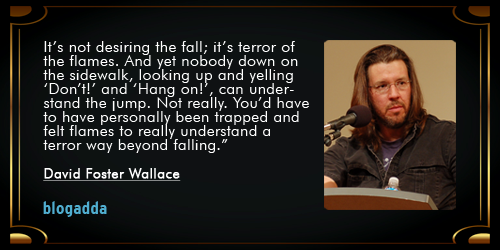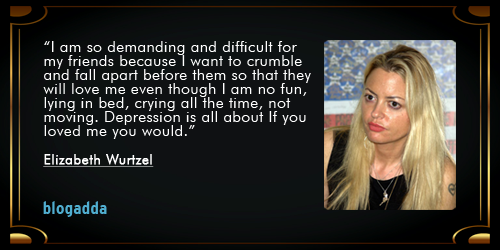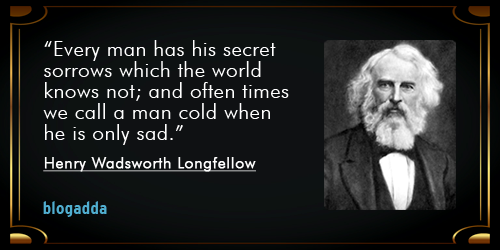Pillars of Life – Family and Friends
Family is a cocoon that keeps you safe and warm during the worst storms. When life hits a rough patch, family is eventually what we turn to. And how much more rougher can it get than depression and anxiety? Depression is not a choice of lifestyle. It is an illness and like any other illness, it is bound to affect the family and close circle of the one suffering from it as well. Dealing with gloom, suicidal thoughts and the sheer inability of the victim to function can put immense pressure on the dynamics of the whole family. And this is exactly the time when the people close to the victim should form a protective ring around them till the storm passes.

Teenagers and kids who undergo phases of extreme depression mostly rely on their parents for help. It is often the family and the closest of friends that are their first mirrors for inner reflection. These pillars of the victim can have the best intentions, but will be of scant help if they don’t know exactly how they can be the life float till their loved one can get to the shore of their normal lives. This is our attempt to talk to these caregivers so they can be the best version of themselves.
In this episode we get into the familial world which is dealing with a depressed one. We understand that it is equally hard on you, but showing a certain amount of support and patience can do wonders for your loved ones. The family can create a stable emotional environment which can prove to be very crucial for the depressed one to latch on to. As their inner most circle, you must convey to them that you are there and talk to them in a loving and non-judgmental way.

While battling alongside a depressed person, you can do your bit by being calm and available to them as per their need. This might not be the time to go by pure logic, so give it a break and let your heart lead the way as they go through inner turmoil that we in the outer world have no idea about. Have you been dealing with someone fighting with their insides and found yourself at the shallow end of the pool, unaware of what is it that you can do? Well, if you mean well, here’s where to start.
The best help family and friends can give a patient is to help him recognize the illness and take help. Also, one should accept it as any other ailment, like diabetes. One should not offer common sense advice like “Snap out of it”,”Stop brooding” or “Stop thinking negatively” as this only makes the patient feel worse.
–Dr. Vasant Mundra, Psychiatrist
You can speak a thousand words to them and still not understand them or you can be there with them in their silence, waiting for them to open up. The choice is yours.
Talk Through their Pain
Talk to your child, friend or partner and let them open up about their emotions and thoughts. They may feel ashamed or guilty for being depressed. You should give them a comforting shoulder and make them realize that it’s not their fault.
The Magic Words
Sometimes, all a depressed person yearns for is someone who validates what he/she is going through. The negative reaction or backlash that comes after sharing their pain is what makes them sink deeper into dismay. For them, a mere “I understand” can be a magical phrase that encourages them to confide in you.
Support and Question
Introverts find it difficult to communicate what’s in their heart. For them, the mental isolation works as a constant catalyst, making them even more depressed. You need to stay updated about what they feel to know what is on their mind and get an insight into the intensity of their inner turbulence.
Seek Medical Opinion
If you doubt your ability to weed out the unwanted mental illness taking root inside your loved one, seek medical advice for handling the depressed person. You might even convince them to seek help or take them for an introductory session with a counsellor. Medical help and counselling can do wonders and stop the problem from getting under their skin.
Things You Must Not Say
Even though we love the person unconditionally, sometimes we might go wrong in tackling their depressed minds. Prolonged depression can be severely damaging and even lead to suicidal steps. While they fight their inner devils, you might want to be careful about what you say to them. You don’t want a case of ‘The road to hell is paved with good intentions’. Here are some things you should never say to a depressed person.
“It’s just a Phase”
No it’s not merely a phase. Depression is more than just a bad time or a fleeting sad feeling; it’s a mental illness and needs to be treated the same way we treat a serious physical affliction. You need to pull them out of it gently, and not leave them be, expecting them to recover alone.

“What do you have to be sad about?”
Often we judge a person by our priorities and our version of ‘Being Happy’. That might not necessarily apply to everyone and and we might not have an idea of what caused depression in the first place. Chemical imbalances in the brain can reduce one’s ability to fight routine stress, making depression far from being self-inflicted. So even if you think the depressed person has everything going for them, making them an unlikely victim of the problem, don’t say that out loud.
“Be Strong”
Yes, you might think that you are helping them, but the phrase you just uttered makes them vulnerable. It confirms their guilt of being weak enough to not handle this. Trust them, they are trying hard to stay alive through all of this, and are already harnessing all the strength to do so.
“Don’t tell about this to anyone”
Our society has a stigma attached to the word ‘Depression’. People are still not comfortable enough to confess their medical illness or sessions with counsellors, scared they would be labelled as ‘crazy’ or mentally ill. This applies to both personal and professional lives, as relatives, friends and most workplaces steer clear of people with depression. In this case, all you need to do is encourage them to just be themselves, tell them that they are being brave and doing a great job and give them hope, rather than keeping their battle under wraps.
Increasing awareness, stop showing it in bad light in news, TV series and films is very important. For a lot of people, psychiatric treatment means sedation and electric shocks. Those days are long gone but still depicted in same way in popular culture. This stops people from seeking help.
–Dr. Vipul Rastogi, Consultant – Neuropsychiatry, Medanta
Fighting depression takes teamwork. Your role is to be there for your beloved patiently and let them come out of the darkness with integrity, holding your hand. As this quote beautifully says,
“The Greatest Oak was once a little nut who held its ground”, so keep holding through the storm as a family. Change begins with you.
Stay with us on our journey through combatting depression with our next episode with personal accounts by those who went through their dark days and came back into the light again. Till then, keep smiling at life, with life.


